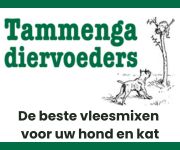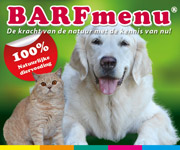Hallo lui,
Op één van de yahoogroups waar ik lid van ben wordt momenteel "Dogs: A Startling New Understanding of Canine Origin, Behavior & Evolution" van Ray Coppinger besproken.
Coppinger himself geeft gedurende de maand november antwoord op allerlei vragen. Volgende passages over "eating habits in livestock guardian dogs" wou ik met jullie delen:
(Q= vraag C= Commentaar A= Antwoord van Coppinger)
Question about eating habits in livestock guardian dogs
Q: I am just wondering if you have any ideas why so many livestock guardian dogs are such inconsistent eaters. It seems to be very common that they are not very interested in food, and sometimes won't eat for a day or two for no particular reason.
Marlene
Q: And why do most of mine seem to need to carry the darned bucket away from ANY spot you leave it for them --- Badger (GP) goes up to ¾ mile with his "take-out" dinner.
Robert D. in KY
C: actually, when I picked my Pyr up from the sheep farm they were also looking for his food dish and they jokingly said "have to search for his dish every day, never know where he has taken it". At my home he has substituted the old behavior with taking things up on the bed.
Marlene
A: I find that these breeds have been raised for centuries on really low quality food -- and supposedly they are adapted to that kind of diet.
So if they are fed too much or too rich they get finicky. I'm not sure that is the right answer -- but I think many of the health problems in these dogs are toooo rich a diet. I think many of the behavioural problems in these dogs is tooooo rich a diet.
Ray Coppinger
C: I have heard that for example in Turkey Anatolian Shepherds are fed a diet consisting mostly of bread/grain products which is supplemented with some milk, afterbirth, the occasional deceased animal or something the dog kills itself. Is that what you have seen?
Somehow I always expected that dogs will eat when something is available as one never knows when there will be another opportunity.
Marlene
C: I find this very interesting, coming from such an authority! I agree but most of the "dog people" I run into don't credit the idea of diet affecting behaviour. I have found that since we started feeding raw (plain?) foods versus kibble to our 15 Pyrs, they do have slightly different behaviours, and they ALL eat well, and are no longer picky. I am fascinated by this book as it has helped me so much with the three "packs" of Pyrs that I have...I hope to learn much more this month!
Peggy Watson
A: Loogit -- there is all kinds of data out there for many different animal species including humans that diet effects behavior. Also keep in mind that to effect a change in behavior during some developmental period can change the dogs behavior for the rest of its life -- regardless of the subsequent diet. I think (know) that feeding these big dogs to rich puppy diet can change the bone density (less) of long bones for instance which changes their gait (behavior) as adults. That is just a one "for instance"
I could tell diet stories for hours.
Ray Coppinger







